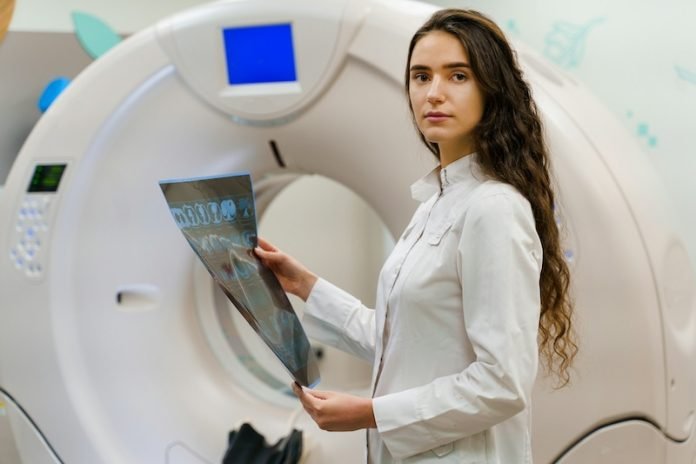
In a remarkable study from the University of California, Irvine, researchers have made an exciting discovery about what causes bleeding in the brain, which goes against what we previously thought.
They found out that old red blood cells clashing with the tiny blood vessels in our brains can actually cause tiny bleeds.
This insight is crucial for better understanding and handling conditions that affect the brain as we age.
The research, which got published in the Journal of Neuroinflammation, was led by Dr. Mark Fisher and Dr. Xiangmin Xu.
They did something quite innovative: they stressed out red blood cells in the lab, made them glow, and then put them into mice to see what would happen.
They noticed that these red blood cells got stuck in the brain’s tiny vessels and watched how the body tried to clean this up.
This cleaning process is important because it’s when things go wrong that bleeds can happen.
The big takeaway from their work is that bleeds in the brain might not always come from damaged blood vessels, like we used to think. Instead, it seems that old red blood cells can get tangled up with the brain’s tiny vessels, and this mess can lead to bleeds.
This happens when certain immune cells in the brain try to swallow up the old red blood cells, but this action can cause bleeding.
This finding is a game-changer. It sheds light on why some people have tiny bleeds in their brains, which is linked to conditions like high blood pressure, Alzheimer’s disease, and stroke.
Dr. Fisher mentioned how crucial their discovery is because it suggests that damage to red blood cells could be a big reason for these brain bleeds.
Looking ahead, the team wants to dig deeper into how the brain clears out these blockages in the tiny vessels and how this might relate to different types of strokes. This is a step forward in understanding how our brains work, especially as we get older.
By figuring out a new reason behind brain bleeds, there’s hope for new treatments and ways to prevent them. This could help millions of people who face risks of brain conditions related to aging.
In a nutshell, this research opens up new paths for tackling stroke and brain health issues, offering a ray of hope for many. It’s an important reminder of how much there is still to learn about our brains and how creative thinking and research can lead us to new solutions for old problems.
If you care about stroke, please read studies about how to eat to prevent stroke, and diets high in flavonoids could help reduce stroke risk.
For more information about health, please see recent studies about how Mediterranean diet could protect your brain health, and wild blueberries can benefit your heart and brain.
Copyright © 2024 Knowridge Science Report. All rights reserved.



